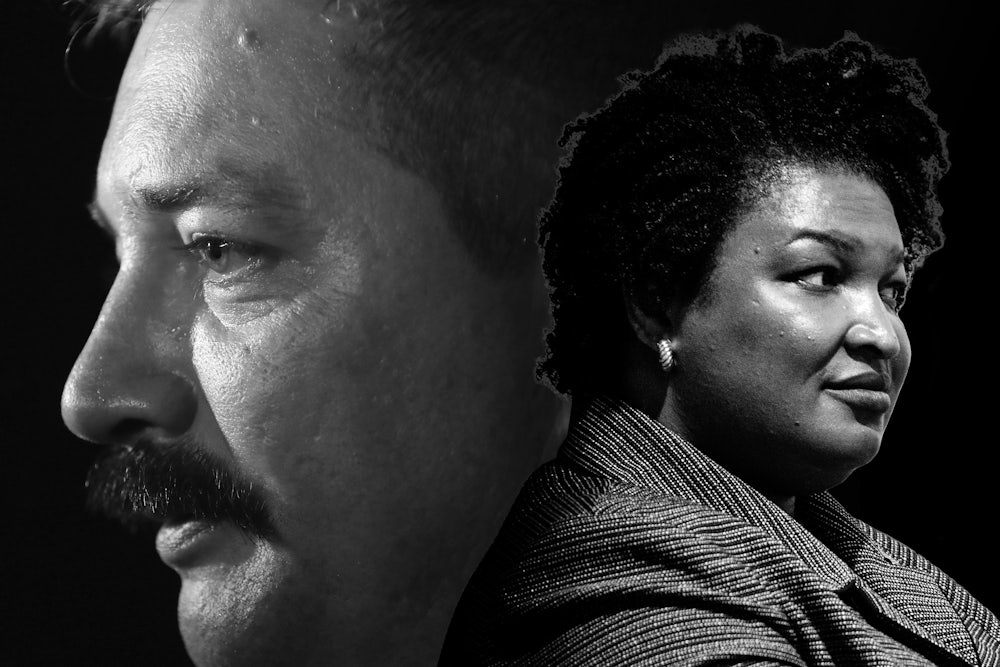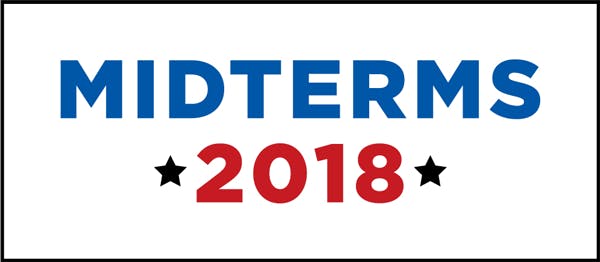Stacey Abrams is running for governor of Georgia, and she’s in debt. Throughout the summer, her opponent, Brian Kemp, criticized her for her financial situation, suggesting that funding a campaign while owing money to the IRS should be made “criminal.” In early August, the Republican Governors Association released a TV spot about her finances. “Stacey Abrams: a self-serving, fiscally irresponsible career politician,” the ad declared.
There is nothing new about conservatives pointing to personal debt as evidence that candidates are fiscally irresponsible, their unbalanced books a sign of some greater personal failing. As a campaign strategy, the criticism helps Republicans—with all their promises to rein in wasteful government expenditures—frame their liberal opponents as profligate spenders who shouldn’t be trusted to manage tax dollars.
Lately, however, the charge has been coming at Democratic candidates from people in their own party. Randy Bryce, the Bernie Sanders–backed Democrat running for Paul Ryan’s House seat in Wisconsin, went bankrupt in 1999, and has only recently paid off a delinquent car loan and $1,257 in late child support—facts that Cathy Myers, his opponent in the Democratic primary, returned to time and again this spring. (He won anyway.) In New York, Andrew Cuomo’s running mate, Kathy Hochul, has criticized Jumaane Williams, the democratic socialist running against her for lieutenant governor, for a home foreclosure he suffered in 2014. “Our NY state budget is $168.3 billion per year,” a recent attack ad charged. “If he can’t manage his own finances, do you really want him managing YOURS?”
In answering for their spending habits, women and people of color often face a particularly stark double standard. Donald Trump’s Supreme Court nominee, Brett Kavanaugh, has racked up tens of thousands of dollars in credit card debt to pay for home improvements and Washington Nationals tickets, and as recently as 2016, he owed up to $200,000 between three credit cards and a loan. Few people expected this to impede his nomination. And why would they? The man who chose him has a string of bankruptcies to his name, and his companies owe a reported $315 million to ten different financial institutions. Even Kemp, Abrams’s opponent, is being sued for allegedly failing to repay a $500,000 loan he had used to invest in an agricultural company. For Kemp and Kavanaugh, debt was simply the cost of an intrepid, entrepreneurial spirit; for Abrams, it was a serious offense.
POLITICIANS WITH DEBTS
Thomas Jefferson:
died $107,000 in debt incurred while building Monticello, collecting furnishings and wine
Abraham Lincoln:
spent years paying off debt on his general store
George McGovern:
sunk $700,000 into a Connecticut hotel that filed for bankruptcy in 1990, two years after he bought it
All may be fair in politics, but in an age when some 80 percent of Americans have personal debts, it’s not clear that denouncing people on the basis of what they owe is good campaign strategy. Student loan debt has almost tripled in ten years, and 26 percent of Americans under 65 are unable to pay their medical bills. The burden falls disproportionately on women, people of color, and young people—especially young people. Roughly 82 percent of millennials have debts. At least 63 percent owe more than $10,000 in student loans, 34 percent hold car loans, and another 46 percent hold credit card debt. And the wage gap means that many of them never reach the salary they’d need to pay off these bills.
That Abrams, Bryce, and Williams can understand these concerns may, if anything, make them more relatable, not less. The ways they fell into debt are hardly exceptional. Bryce, an ironworker, declared bankruptcy after he was forced to pay for cancer treatment without medical insurance. Williams’s home went into foreclosure after a restaurant he co-owned folded. Abrams took out loans to attend Yale Law School, and shouldered some of her family’s debt when her parents fell ill.
It is possible that these histories, which in the past may have been a liability, will prove to be an asset, resonating with the four out of five Americans who also owe money. “When you hear a candidate talk about their student loan debt, it’s not a turnoff,” said Lesley Lopez, a Democratic nominee for Maryland’s General Assembly. “It’s a sign the candidate understands what has become a generational struggle.”
The sheer ubiquity of debt may have begun to change how Americans see the issue—as a structural condition more than a personal failing—and therefore how they see candidates who owe money. Democrats have plenty of good reasons to criticize Kavanaugh—his track record on the bench, for one, opposing abortion rights and environmental regulation; and whatever favors he may have gotten in return for buying tickets for Washington power brokers. But the mere fact of his credit card debt shouldn’t be counted among his faults, just as Abrams shouldn’t be kept from the Georgia governorship by her student loans, nor Williams barred from public service because he chose a bad adjustable-rate mortgage.
In the Trump era, as younger activists enter American politics, voters will likely encounter more candidates who owe money. These candidates may be wise to talk about their financial woes frankly. “As everyone following the race now knows,” Abrams wrote in Fortune in April, “I owe the IRS over $50,000 in deferred tax payments . . . and hold more than $170,000 in credit card and student loan debt.” Four weeks later, she won the Democratic primary.

